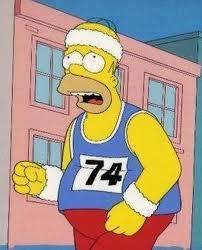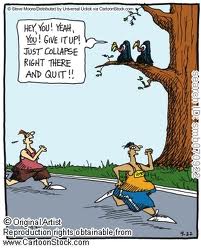A bit of a disturbing study – and it’s just one study- from the States, suggesting that for some healthy people exercise could be bad for the heart. Gina Kolata writes about it on the NY Times Health blog. Here’s a portion:
“Could exercise actually be bad for some healthy people? A well-known group of researchers, including one who helped write the scientific paper justifying national guidelines that promote exercise for all, say the answer may be a qualified yes.
By analyzing data from six rigorous exercise studies involving 1,687 people, the group found that about 10 percent actually got worse on at least one of the measures related to heart disease:blood pressure and levels of insulin, HDL cholesterol or triglycerides. About 7 percent got worse on at least two measures. And the researchers say they do not know why.”
The study suggests that an equal percentage of people showed very good changes to those key measures. One of the mysteries is that there doesn’t seem to be a significant correlate to age, gender, race, or previous level of fitness. The study was not long-term, so failed to measure the actual impact on heart disease and mortality.
In contrast to this study, shows like the Biggest Loser are showing that exercise is a significant part of the treatment for unhealthy people with conditions like diabetes and cardiovascular disease. See this Medscape article.
So what is a jogger to do? Or a swimmer? Or cyclist? I would never suggest anyone ignore the results of good science, but in this case there is so much data supporting regular exercise — from weight loss to improved psychological outlook – that I would file this study under “lets check again about this later, when more research backs it up and spells out the significance.”
My suspicion is that many who start a new exercise program do so too vigorously, and that might have a negative impact on parts of the body.



